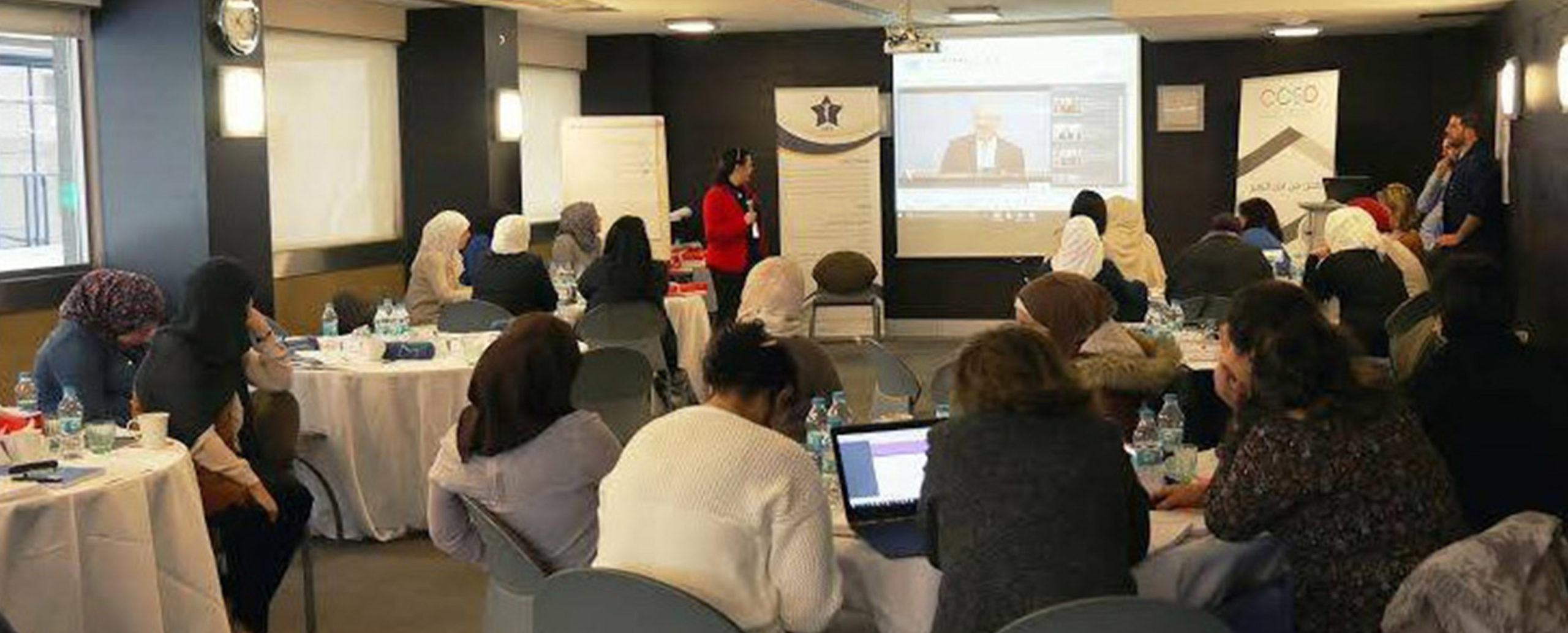
Space for Cooperation
It is a meeting that brings together leading active Syrian women in the three tracks, providing a space for the exchange of ideas and experiences on a Syrian issue from the point of view of Syrian women. The first “Space for Cooperation” conference was organized in August 2014, and our current conference is the fourth conference specialized in the file of detainees, given its great importance to all Syrians, and its direct relationship with a large number of Syrians, between former / current detainees, forcibly disappeared, and their families, due to its negative impact on them, and given the stumbling block of building a sustainable peace and a justice, law and democracy that guarantees the rights and freedoms of all its citizens, which cannot be achieved without reaching any solutions to the issue of the detainees and accountability for all those who committed crimes against the Syrian people.
Why should a girl be educated?
Education is one of the most prominent and most important rights that must be granted to a person, regardless of his gender, and includes the class and gender of women and girls, and it is no less important than the education of a man at all, as he depends on his education on his mother before school, and the education of a girl increases the rate of advancement and growth of society and helps to raise the level of per capita income in society in general to a rate of up to 20%
The impact of the war on Syrian women
The imbalance of power in society between males and females is the basis for the occurrence of violence against women, and when wars and crises were pushing towards an imbalance of this balance, which leads to the emergence of new roles for both sexes, and the emergence of patterns of violence in its general form, and that reality on women in particular, considering women are from the marginalized groups in the Syrian society.
This research attempted to monitor the types of violence practiced against women in Idlib governorate and its countryside after the change in social roles as a result of the conflict, and to identify how women respond to the violence practiced against them, and its cause.
Research work within two frameworks, theoretical and applied:
Theoretical framework: which tried to provide a theoretical rooting for the phenomenon of violence in general, and that practiced against women in three perspectives: violence and its relationship to force, violence and gender change, violence and the empowerment of women.
As for the applied framework: it aimed to read the phenomenon of violence practiced against women from the point of view of women in Idlib city and its countryside, using the exploratory research methodology, relying on two tools:
The first: Focused discussion sessions (the results of which served as a horizontal description of the phenomenon and gave the research a general picture of the phenomenon).
The second: the interview, which was based in the formulation of its questions on the results of the focus sessions, and the results of these interviews were like a microscopic image – magnified, which gave the research a deeper detailed understanding of the phenomenon.
The field research was conducted in Idlib Governorate, in both the countryside and the city. To monitor the differences in the phenomenon of violence between the countryside and the city, where 16 focus group discussions were held, 8 in the countryside, with 50 focused interviews specifically in Ehsim, Meraian, Kansafra, Kafr Nabl, Kafrhaya, Alrami, Ballion, Arnaba, Hass, and Al-Bara, and the same in the city of Idlib, Marretmasrin, Ariha, Kfar Tkharim, Mastuma, Saraqib, Binnish, Millis, Salqin and Darkush.
The research concluded that the change in social roles in society led to the existence of types of violence that did not exist before the protest movement, including social ostracism or rejection practiced by society as a whole against women survivors of detainees, as well as detention by parents for fear of their daughters from individuals. Those in possession of weapons, and the compulsion to adhere to the (legal) dress imposed by some armed factions. Also, there is a very great convergence in the rates of violence between the countryside and the city, and identical types, and almost identical response to women and girls to violence, the majority of them fear the doubling of violence; Silence or disclosing to someone trustworthy and close.


